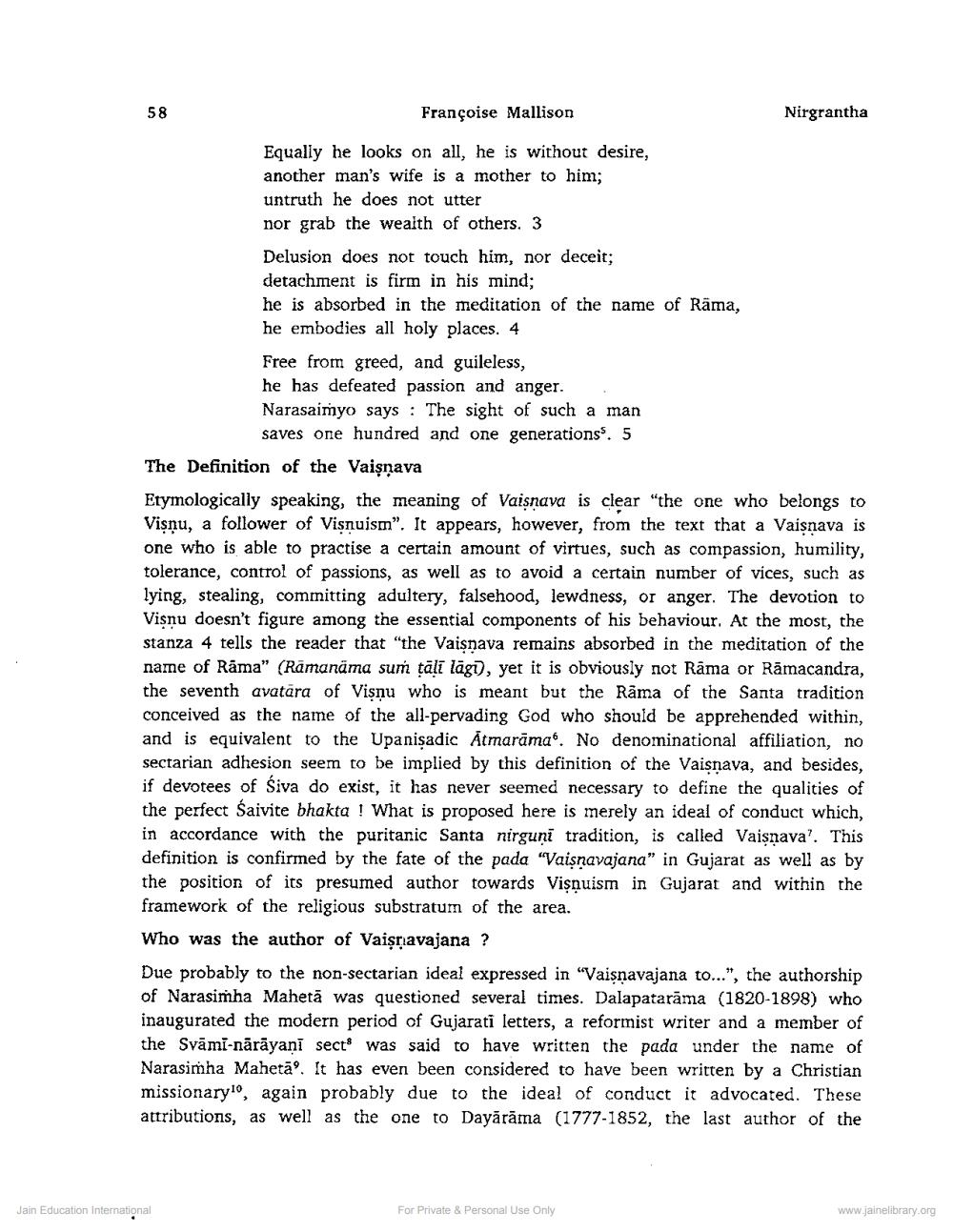Book Title: Jaina Heritage in Gujarat Author(s): Francoise Mallison Publisher: Z_Nirgrantha_1_022701.pdf and Nirgrantha_2_022702.pdf and Nirgrantha_3_022703.pdf View full book textPage 2
________________ Françoise Mallison Nirgrantha Equally he looks on all, he is without desire, another man's wife is a mother to him; untruth he does not utter nor grab the wealth of others. 3 Delusion does not touch him, nor deceit; detachment is firm in his mind; he is absorbed in the meditation of the name of Räma, he embodies all holy places. 4 Free from greed, and guileless, he has defeated passion and anger. Narasaimyo says : The sight of such a man saves one hundred and one generationss. 5 The Definition of the Vaişnava Etymologically speaking, the meaning of Vaisnava is clear "the one who belongs to Vişnu, a follower of Visnuism”. It appears, however, from the text that a Vaišnava is one who is able to practise a certain amount of virtues, such as compassion, humility, tolerance, control of passions, as well as to avoid a certain number of vices, such as lying, stealing, committing adultery, falsehood, lewdness, or anger. The devotion to Visnu doesn't figure among the essential components of his behaviour. At the most, the stanza 4 tells the reader that "the Vaisnava remains absorbed in the meditation of the name of Rāma" (Rāmanāma sum tālī lāgo, yet it is obviously not Rāma or Rāmacandra, the seventh avatara of Visnu who is meant but the Rāma of the Santa tradition conceived as the name of the all-pervading God who should be apprehended within, and is equivalent to the Upanişadic Atmarama. No denominational affiliation, no sectarian adhesion seem to be implied by this definition of the Vaisnava, and besides, if devotees of siva do exist, it has never seemed necessary to define the qualities of the perfect Saivite bhakta ! What is proposed here is merely an ideal of conduct which, in accordance with the puritanic Santa nirguni tradition, is called Vaisnava'. This definition is confirmed by the fate of the pada "Vaisnavajana" in Gujarat as well as by the position of its presumed author towards Vişnuism in Gujarat and within the framework of the religious substratum of the area. Who was the author of Vaisnavajana ? Due probably to the non-sectarian ideal expressed in "Vaisnavajana to...", the authorship of Narasimha Mahetā was questioned several times. Dalapatarāma (1820-1898) who inaugurated the modern period of Gujarati letters, a reformist writer and a member of the Svāmi-nārāyani sect was said to have written the pada under the name of Narasimha Maheta'. It has even been considered to have been written by a Christian missionary, again probably due to the ideal of conduct it advocated. These attributions, as well as the one to Dayārārna (1777-1852, the last author of the Jain Education International For Private & Personal Use Only www.jainelibrary.orgPage Navigation
1 2 3 4 5 6 7 8 9
